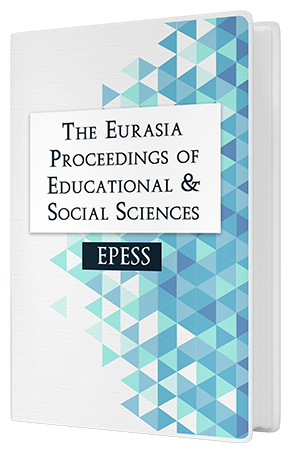An Investigation of the Effects of Teachers’ Classroom Questioning Techniques on the Performance of Senior Secondary School Students in Mathematics, Zamfara State, Nigeria
Keywords:
Investigation, Effects, Teacher questioning techniques, PerformanceAbstract
Majority of the research finding shows that questioning techniques is one the major factors affecting the teaching and learning mathematics in our schools. This study is designed to seek views of the Students on the effects of teachers’ classroom questioning techniques on their performance in mathematics. The opinion of 1000 Senior Secondary Schools Students level from same selected schools in Bungudu Local Government of Zamfara state was sought on a four Likert scale questionnaire. The instrument consisting of forty statement on how they perceived the effects of the teacher’s classroom questioning techniques in mathematics. The results showed that the respondents agreed that their teachers’ classroom questioning techniques were having a positive impact in their learning outcome performance in mathematics. The t-test results showed that there was gender significant difference on the effects of the teacher’s questioning techniques in relation to mathematics performance. The result also revealed that there was significant difference existed between the choice of subject and students learning experiences. However, based on the findings of the study, the researchers recommended that workshops, seminars, conferences and in-service training be organize for the mathematics teachers on how to use effective classroom questioning techniques in the teaching and learning mathematics senior secondary school level. It was also recommended that the classroom questioning techniques be included in the mathematics curriculum for teacher’s education programmes.Downloads
Published
Issue
Section
License
Copyright (c) 2020 The Eurasia Proceedings of Educational and Social Sciences

This work is licensed under a Creative Commons Attribution-NonCommercial-ShareAlike 4.0 International License.
The articles may be used for research, teaching, and private study purposes. Any substantial or systematic reproduction, redistribution, reselling, loan, sub-licensing, systematic supply, or distribution in any form to anyone is expressly forbidden. Authors alone are responsible for the contents of their articles. The journal owns the copyright of the articles. The publisher shall not be liable for any loss, actions, claims, proceedings, demand, or costs or damages whatsoever or howsoever caused arising directly or indirectly in connection with or arising out of the use of the research material. All authors are requested to disclose any actual or potential conflict of interest including any financial, personal or other relationships with other people or organizations regarding the submitted work.




